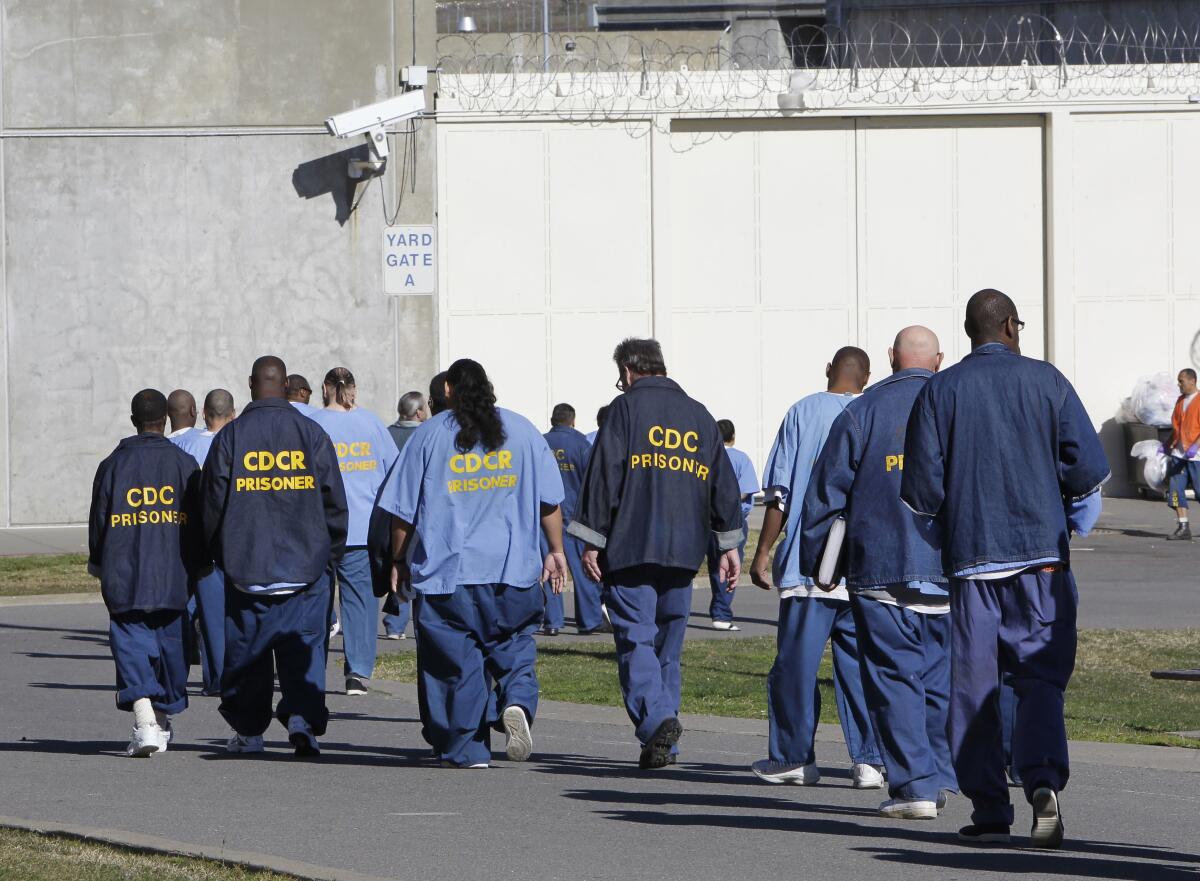Letters to the Editor: Is forced labor good for inmates, or is it modern slavery?

- Share via
To the editor: The idea of eliminating work requirements for incarcerated Californians is poorly thought out.
Inmates are where they are because of making poor choices, often driven by a lack of hope for the future. What better chance to reduce recidivism than to release inmates with the training for a trade that might help them reintegrate into society?
In the past, inmates have been tasked with making furniture used by California’s public school system, skills for which there is an established market. In Nevada, inmates have been trained to work on the restoration of vintage automobiles, another set of marketable skills. Prison training can help fill the gap for skilled workers created by schools that have dropped automotive programs.
Calling this work slavery rather than education and the opportunity for inmates to repay their debt to society is an unfortunate choice of words. People who are convicted of crimes should be obligated to work to repay their victims, and in the process learn a skill that will offer them hope on the outside.
Don Green, Merced, Calif.
..
To the editor: It is striking that the arguments used by opponents of banning forced inmate labor have been heard before.
During the 19th century, there were two main arguments made by the defenders of slavery. The first was economic: They claimed that the South’s economy could not survive without unpaid, forced labor on plantations.
The second was moral: Pro-slavery forces argued that enslaved African Americans were backward heathens, and slave owners were doing their Christian duty by civilizing them.
The 13th Amendment’s prohibition on slavery included the following phrase: “except as a punishment for crime whereof the party shall have been duly convicted.” This enabled the large-scale continuation of plantations and chain gangs, with mostly Black prisoners (many convicted of dubious offenses) forced to labor in horrendous conditions.
In the current debate, we hear from the California Prison Industry Authority that prisoner labor “provides significant economic benefits to the state.” The state Department of Finance estimates that a minimum wage requirement for prisoners could cost $1.5 billion annually.
We also hear a moral argument, that crime victims are morally superior to incarcerated people and deserve restitution.
It is time to declare this issue settled once and for all. Forced labor is a stain on our conscience and should be prohibited in all forms.
Martha Cody, Los Osos, Calif.




